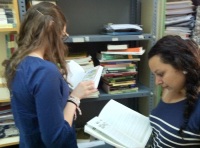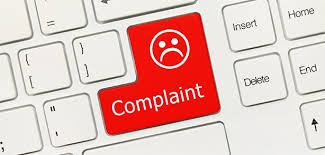Unit 4. Session 2. The best future business.
Situation

Listen to the situation.
Eva and Monica have been in London for over eleven weeks and they seem to be more used to their new lives.
Time flies and although they have been there for a short period of time, it seems like centures!
They feel much more comfortable in tiny studio, but it´s cute, and although they have to get up at 7.00 in the morning, they are also quite happy at work. At the weekends, they usually go out with friends and do sightseeing around London and from time to time they even go to a restaurant because it´s too expensive.
One morning, while they were on their way to the company, Eva stopped at a kiosk and took a newspaper.
–Monica, look. Can you imagine what the office of the future will look like?
–Come on Eva, we are running late!
–It's just a second; this is a really interesting article about the office of the future and about the new technologies that we will use!
–OK, if it is so interesting, why don't you buy it so that we can go to work, I don't want to be late!
–OK, let's go...
On their way to the office, Eva keeps thinking about the article and asks Monica:
–Monica, how do you imagine the office of the future? Can you imagine what British Corporation will look like in 2075?
El tiempo vuela
siglos
diminuto
es mono, cuco.
excursiones
de ciento en viento..
parecería
Think about it
And you? How do you imagine the office of the future and about the new technologies that we must use? Do you think it will be different from the ones we have nowadays? Do you think that the coronavirus pandemic will affect the operation of companies? Enter the forum and share your opinion with your classmates.


Materiales formativos de FP Online propiedad del Ministerio de Educación y Formación Profesional.
 Give your opinion in the forum.
Give your opinion in the forum.
 Do you need to get out of the red
Do you need to get out of the red









